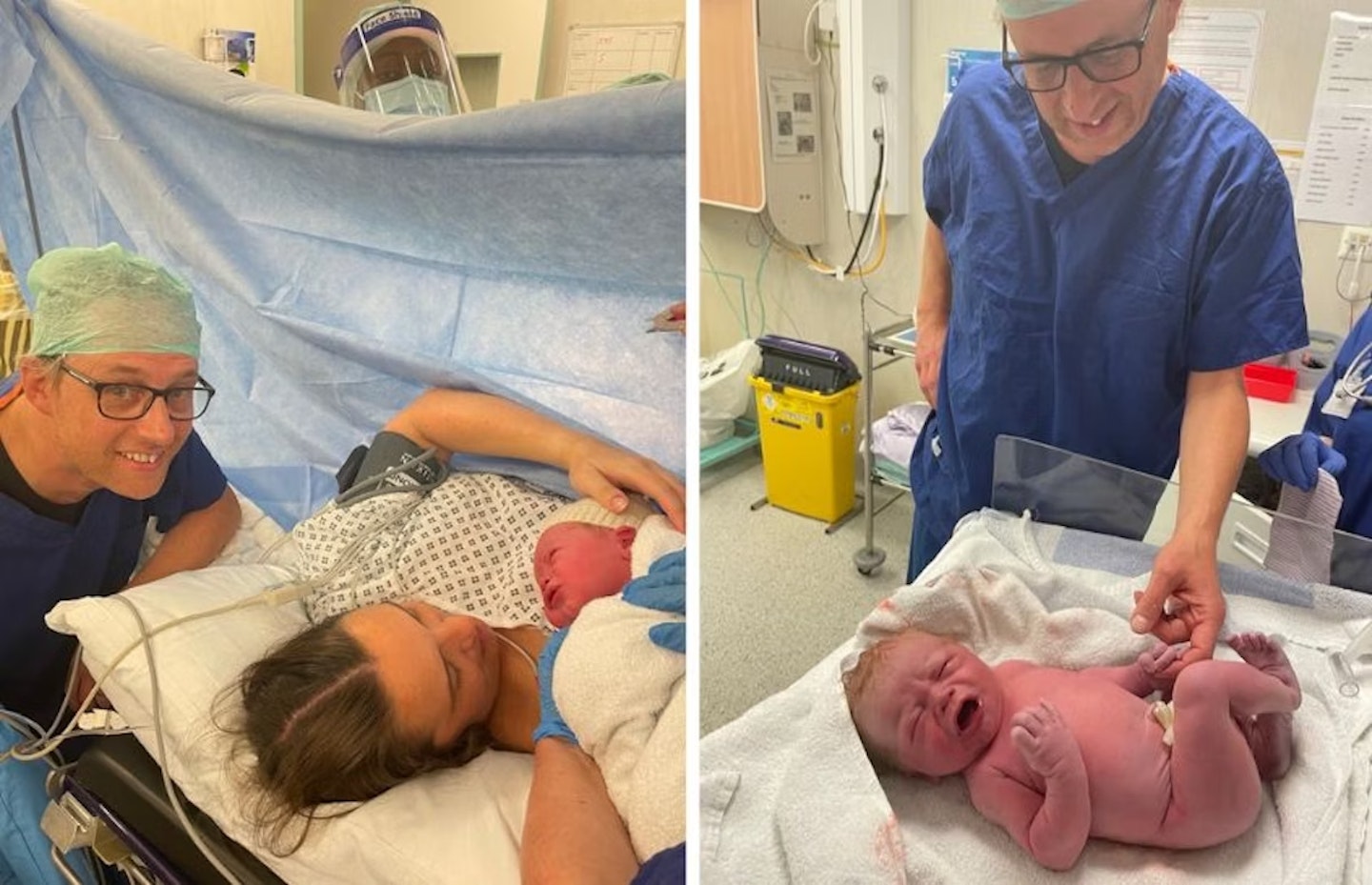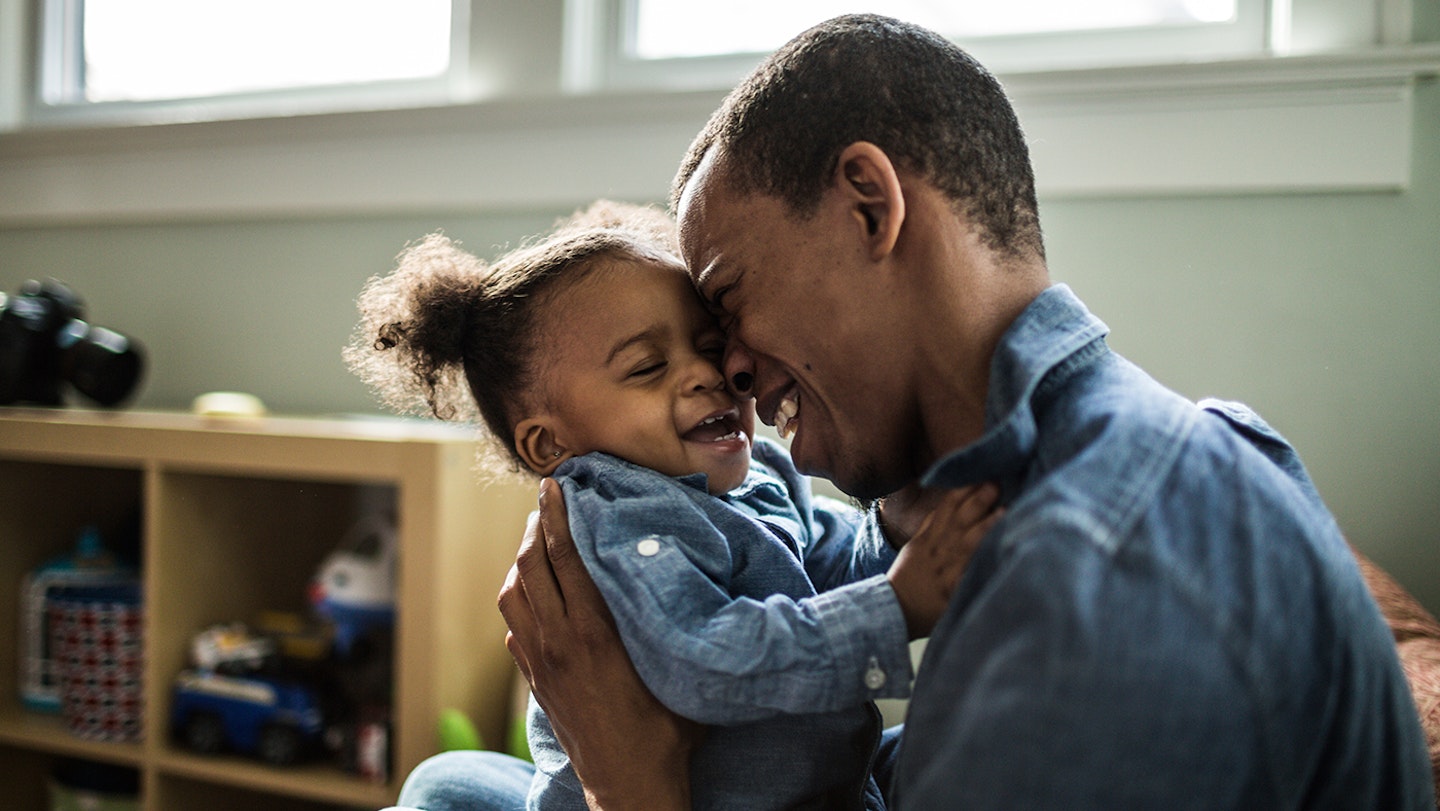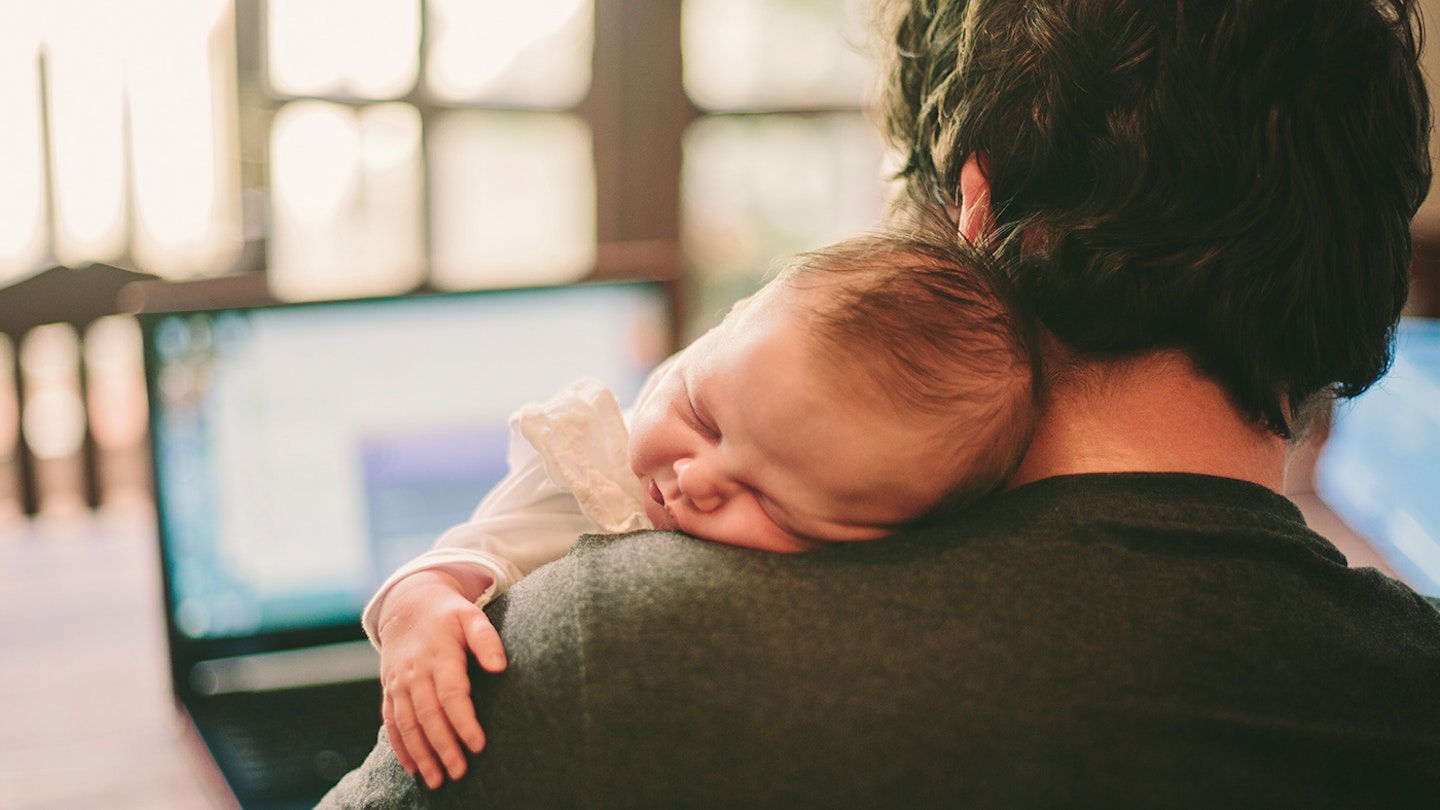Sometimes becoming or being a dad might not be how you once imagined it would be. This could be a result of anything from trouble with your own mental health to a difficult pregnancy or birth to experiencing miscarriage or baby loss and postnatal depression. Dr Patricia Britto, from Mode Educational Psychology Service, says, "while much of the narrative around parenthood focuses on mothers, fathers also navigate significant emotional, psychological, and social transitions that warrant support."
Becoming a dad can be overwhelming and often you might feel a little helpless, especially with all the emphasis and attention on mum and baby. Dr Patricia says, "research underscores that the perinatal period is a transformative time for fathers, marked by excitement but also anxiety and uncertainty. Studies indicate that around 10% of new fathers experience symptoms of postnatal depression, a condition often overlooked due to societal expectations of stoicism in men." She continues, "a study published in the Journal of Affective Disorders (2020) found that fathers’ postnatal depression is linked to increased stress, a lack of social support, and challenges in adjusting to their new roles." Dr Patricia also adds, that "men also face unique pressures, such as feeling sidelined in medical appointments or struggling to meet societal expectations of being the “provider” while balancing the desire to be present and emotionally available for their families."
Mother and Baby's writer, Jim Foster, describes how his mental health "takes a battering" in his blog, The Geriatric Dad. He says, referring to his wife's pregnancy, "while I am naturally quite an anxious person anyway, at the moment I am particularly so." He goes on to explain, "the second trimester is nearing an end, and we're getting close to the point now, where if Sprout were to arrive early, then the obstetrics docs might consider him viable. That, to me, is a big deal. Every day counts now. We're so close - and as a result, I can feel myself becoming increasingly protective of Daisy and the precious cargo she's carrying. I'm checking for trip risks when we walk. I'm looking out for danger continuously. And when I drive, I no longer bomb around corners or overtake trucks on 'A' roads, instead preferring to happily trundle along behind them at half the speed limit!"

Why supporting fathers benefits the entire family
Dr Patricia stresses the importance of supporting fathers, as well as mothers and how it can benefit the entire family. She says, "evidence consistently shows that involved, supported fathers contribute to better outcomes for children and families. A meta-analysis in Developmental Psychology (2016) found that paternal involvement is linked to higher cognitive and emotional development in children. Fathers who feel supported are also better partners, which enhances family dynamics overall." She continues to explain the impact supported fathers can have on their children, adding, "when fathers receive adequate emotional and psychological support, it profoundly influences their parenting. Fathers who manage stress, process grief, and nurture their mental health are more emotionally available, patient, and engaged with their children. They model healthy coping mechanisms, fostering resilience in their offspring. Additionally, supported fathers are better equipped to form secure attachments, which research (Attachment & Human Development, 2018) has shown to play a vital role in children’s emotional and social well-being. But, when fathers thrive, their children thrive, too."
How to support fathers?
Whether it's your partner's pregnancy making you anxious, the journey to conception, or following the birth, it's understandable that you might feel that there isn't support out there specifically for you and your individual needs. However, whatever you are feeling and whatever the reason, if you think you might need help, there are plenty of fantastic organisations waiting to support you. It is also important to remember that if you are struggling you can reach out to your GP for advice and help. Plus, you might find support from an app for parentshelpful too, and there are lots to try, as well as specific apps for dads as well as remembering to take time, after becoming a new dad to bond with your baby, with things like skin-to-skin contact and talking to baby so they get to know your voice. It is also important to spend time with other dads.
Dr. Patricia says, "encouraging men to prioritise self-care is vital. Fathers often neglect their well-being, which can impact their ability to parent effectively. Strategies include:
1. Education and Awareness: Workshops or counselling sessions can help fathers understand the emotional shifts of parenthood and equip them with coping strategies.
2. Workplace Flexibility: Advocating for paternal leave and mental health days can reduce stress during this critical period.
3. Community Support: Connecting fathers through support networks or parenting groups fosters camaraderie and shared understanding.
4. Access to Therapy: Normalising therapy for men is essential. Cognitive Behavioral Therapy (CBT) and group therapy are effective for addressing paternal mental health concerns."
Dad specific support
While having a baby and becoming a father is exciting and wonderful, it can be daunting, exhausting and overwhelming, especially while also trying to support your partner and manage all the visitors to see baby and work.
Perhaps consider if you need more support or even extended leave from work, if it's possible. The parenting campaign, Parenting Out Loud, believes dads taking equal responsibility for childcare should be normalised. With 3 out of 5 dads taking two weeks or less paternity leave after the birth of a baby, it's no wonder they are feeling the pressure.
It's a lot for dads and that is why one of these groups to support dads might be useful.
Dads House offers emotional support, combating loneliness and isolation by being available to chat with Dads on the phone or in-person at their drop-in centre, breakfast clubs, law clinics, food banks and accommodation/housing. Email info@dadshouse.org.uk or ring 07765 183504 and ask for Billy.
Dads Matter UK provides information and support for dads worried about or suffering from Depression, Anxiety and Post-Traumatic Stress Disorder (PTSD).
Non-dad specific organisations
Your problem might not be related to being a dad but you still need support with your general mental wellbeing. If this is the case, here are some mental health support organisations for you.
A charity that specifically supports men following bereavement, they offer telephone-based peer support service from volunteers with first-hand experience of losing a loved one.
This men’s Mental Health Charity offers free-to-attend talking groups for men and challenges the stigmas around Male Mental Health.
Campaign Against Living Miserably (CALM) aims to provoke conversation, running life-saving services, and bringing people together so they get help when they need it. Their helpline runs 5pm–midnight, 365 days a year. Call 0800 585858.
Provides advice and information to empower anyone experiencing a mental health problem. Call Mindinfoline on 0300 123 3393, 9am-6pm Mon-Fri, email info@mind.org.uk
No Panic
Provides step-by-step programmes and support for those with anxiety disorders. Call 0844 967 4848, 10am–10pm daily, or receive email support at info@nopanic.org.uk.
Offers emotional support if you’re feeling distressed or despair. Call 116 123 24 hours, daily.

Family support organisations:
Whole families can be impacted for numerous reasons. Here is some support for any family issues you may be going through.
Provides services for families experiencing poverty or social isolation, including mental health support. Its National Parent Support Service helps those struggling with the challenges of parenthood and can help you find out about the services available: call 0808 802 6666, Mon-Fri 9m-10pm, text 07537 404 282, or email NDPSS@family-action.org.uk
Offers information and support in all aspects of family life. Call 0808 800 2222 9am-9pm Mon-Fri, 10am-3pm Sat-Sun or email askus@familylives.org.uk. The website has advice on baby sleeping, eating and health.
A family support charity that helps families with young children deal with the challenges they face, such as money issues, mental health, isolation and illness.
Provides advice, information and practical support for single parents – from dealing with a break-up to going back to work or organising financial issues. Helpline is 0808 802 0925, 10am-6pm Mon, 10am-4pm Tu, Thu & Fri, 10am-1pm & 5pm-7pm Wed.

Offers counselling and workshops on relationships and family issues. Book a counselling appointment on 0300 003 0396, 8am-10pm Mon-Thu, 8am-6pm Fri, 9am-5pm Sat, or have a live online chat.
Sands, stillbirth and neonatal death charity offer support to those who have been affected by the loss of a baby for both families and professionals. You can call them on 0808 164 3332 or email them at helpline@sands.org.uk. There is also Sands United Football Club. Sands United FC (SUFC), was an idea born out of love for the beautiful game and a group of dads who felt they needed a support network to turn to after going through the loss of their baby.
Premature birth
Provides support for parents of babies born premature or sick. Call 0808 801 0322, Mon-Fri 1am-12pm and Mon-Wed 7pm-9pm.
Work
Offers advice for mums and dads regarding their rights at work and to benefits and healthcare. Call 0808 802 0029.
About the expert
Dr Patricia Britto is an Educational Psychologist, mother, and the founder of Mode Educational Psychology Service. Bringing both serious commitment and relentless enthusiasm to her work, Dr. Britto believes that where families thrive, minds flourish
Laura Healy is a Commercial Content Writer for Mother&Baby. She is a mum-of-two girls and loves writing about all things parenting, she is particularly interested in the toddler years and eco-friendly baby products, as well as children’s literature. She has a PhD in Creative Writing and has published short stories in the UK and Ireland, as well as previously writing freelance for her local paper.
